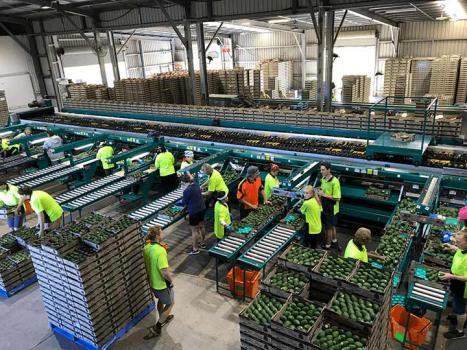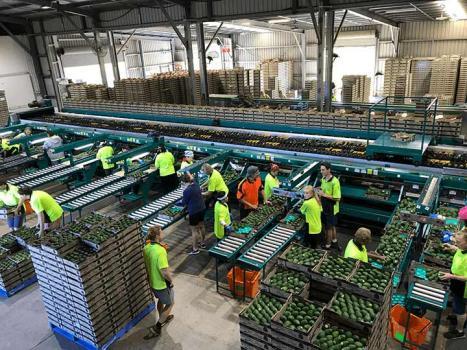Cedar Hill Flowers and Foliage is a major researcher and primary producer of Australian native flowers and foliage. An extensive network of growers and wholesalers are sourced nation-wide while some plants are grown at the headquarters in Woombye.
The business, which has been running for close to three decades, is one of 15 successful under the most recent round of Queensland Government Rural Economic Development (RED) Grants up to $250,000.
Plans are in place to install automated propagation facilities, capable of moving the business from traditional greenhouse production which involves significant labour inputs.
Funding will be used to install remote irrigation controls, climate control including humidity, radiation and temperature and extensions to infrastructure.
General manager James Roemermann said it was expected the project would allow for an estimated increase of 25% in overall production.
“Providing optimal growing conditions for young ornamental horticulture and floriculture plants will result in increased growth rates and improved plant health and yields,” he said.
“This will reduce the instances of pest and disease infestation resulting in a reduction in the use of chemicals. By increasing greenhouse productivity through the utilisation of cutting-edge technology it is expected employment opportunities at both ends of the production cycle will be created.
“Improved plant growth and reductions in the mortality rates of existing systems will lead to an increase in available resources to develop and exploit some of Australia’s unique flora expanding the range of Australian products already entrenched in the global flower trade.”
The project is expected to create 10 full time jobs, including plant propagators, tube stock potters and tubs stock packers, and additional indirect fulltime roles.
Growers in Europe are already making the most of advanced methods of greenhouse climate controls and increased productivity and quality in numerous species.
Mr Roemermann said growers were challenged with access to affordable technology which would allow them to compensate for the losses in productivity through climate change.
“Increasing demand in the domestic and global floriculture markets over the last two to three years had led to shortage of supply,” he said.
“By providing local producers with the capability of adapting quickly to changing market trends and enabling them to meet the supply demands of these markets, we expect the export revenue generated by regional producers of cut flowers and foliage to increase both in the short and long term.
“In an extremely competitive global industry, local Queensland producers must compete with primary producers in other countries, including Columbia, Brazil, South Africa and Spain, which often have significantly lower costs of production. Queensland producers must continually strive for improved quality and yields to remain completive.
“Through our network of established plant breeders and growers we will be able to provide Australian flower growers with the highest quality stock of proven varieties and new and emerging varieties of plants. Australian flower growers will have an enhanced ability to compete with producers from other countries that have less impediments to market access and lower production costs.”
The RED Grant program offers emerging projects up to $250,000 in co-contributions to build industry and grow employment opportunities across the agricultural sector. The $10 million grants program provides for three funding rounds over a three-year period ending 2021.
A total of 15 businesses have received $3.3 million under the first-round of funding for the RED Grant program. Overall these 15 projects are expected to create over 600 jobs across the agricultural sector in regional Queensland.
QRIDA offers a range of assistance to primary producers, small business and non-profit organisations. To find out what’s available visit Programs and Services.
The Queensland Rural and Industry Development Authority (QRIDA) administer the RED Grant scheme on behalf of the Department of Agriculture and Fisheries.

